
How a bipolar disorder sufferer used meditation and yoga to manage her mental health, and now helps others as a counsellor
- Opal Li, who suffers from depression and bipolar disorder, started to control her mental health turmoil when she discovered meditation, and later yoga
- Her advice to people who are facing mental health issues is to recognise that there is nothing to be ashamed of and to seek help
Opal Li has found her calling. After many years of sorting through her own mental health issues, the Hong Kong resident is now a mental health counsellor herself.
“My purpose is to help others. I know what it is like to be in a dark place and want to support people who are suffering,” says the 41-year-old, who works with mental health charity Mind HK and ReSource Counselling, both in Hong Kong.
“I feel blessed to have this opportunity every day.”
Li started suffering from depression in her late teens. She attributes this to pressure from family and society to be a “good student”, get a “decent job” and find a “good partner”.
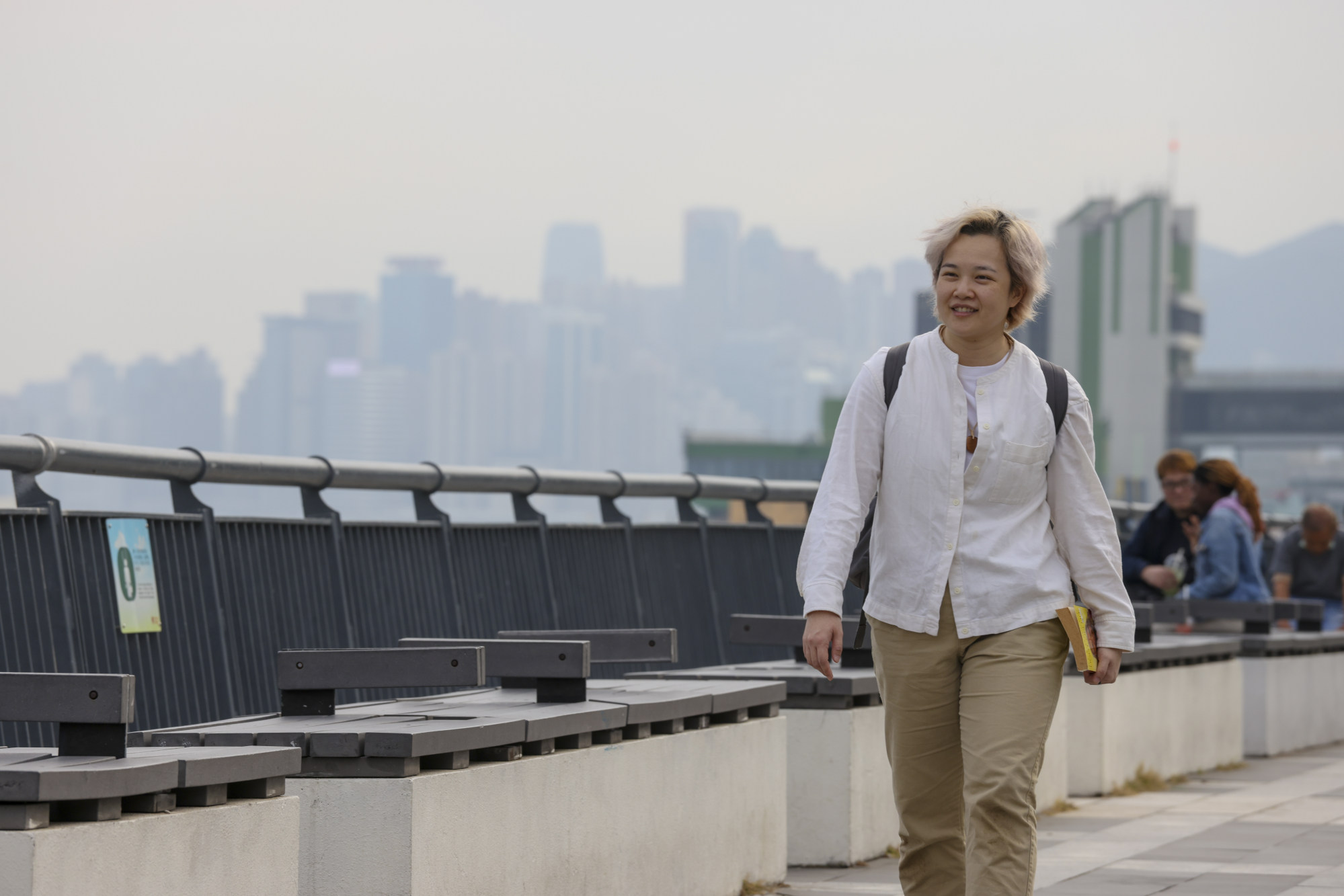
“I felt a lot of stress, to live up to a certain academic standard in an environment where constant comparison was the norm. I didn’t understand myself and my situation did not allow me to explore who I was. By my mid-20s I felt a big hole inside me,” says Li, adding that she had suicidal thoughts at the time.
She experienced extreme mood swings, vacillating between feeling energetic to episodes of depression.
“There were too many voices in my head. I felt people were out to harm me,” she says.
It was hard for her to talk about her feelings with family or friends, though, because of the stigma attached to mental illness – and lack of awareness on the subject.
“My parents love me but did not know how to express their feelings for me or support me. Once I was able to take charge of my situation, they were able to understand me better.”
Her mental health issues affected her relationships and career.
She began her working life in digital marketing, putting in long hours and then drinking in the evenings with colleagues. She developed insomnia, barely able to sleep for four hours a night.
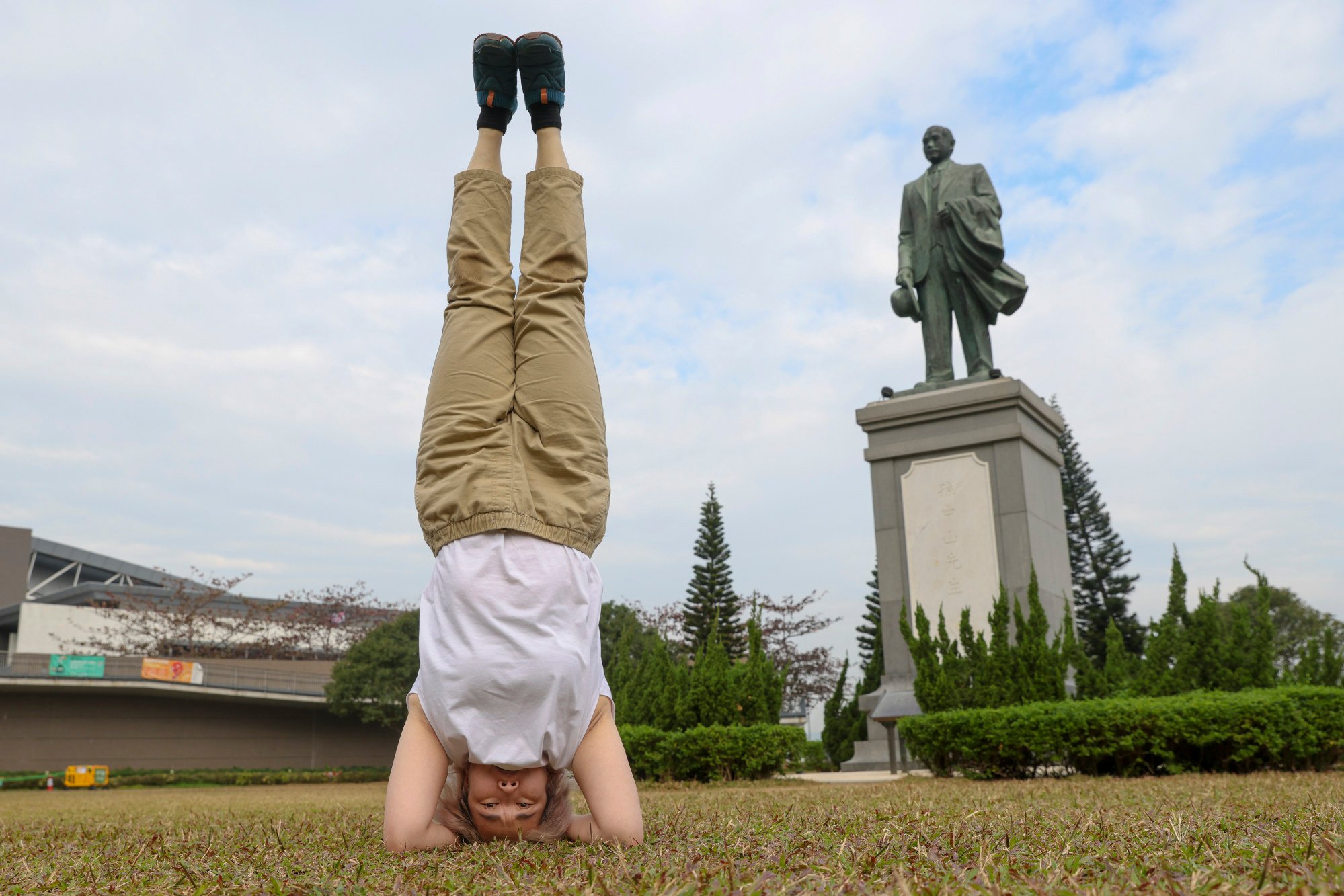
Meditation helped her manage her mental turmoil.
Intrigued after a colleague told her about Buddhist meditation, she joined a day of mindfulness organised by the Plum Village Foundation Hong Kong, a local charity that promotes Buddhist teachings and practice.
She then attended 10-day Vipassana silent meditation retreats in 2008 and 2009 before joining the Hong Kong Insight Meditation Society (HKIMS) for its group meditation practices.
Buddhism taught me that suffering is a part of life and that every problem I was facing, someone had faced earlier
At the time, the meditation retreats acted as “painkillers”, she says. But in 2012, when she turned 30, she had an acute psychotic episode and was diagnosed with bipolar disorder.
Formerly called manic depression, this form of mental illness causes unusual shifts in a person’s mood, energy, activity levels and concentration.
It is a lifelong condition. The World Health Organization estimated that about 40 million people worldwide suffered from it in 2019.
According to the Mayo Clinic, based in Rochester, in the US state of Minnesota, when a person with bipolar disorder becomes depressed, they “may feel sad or hopeless and lose interest or pleasure in most activities”.
When their mood shifts to mania, they “may feel euphoric, full of energy or unusually irritable. These mood swings can affect sleep, energy, activity, judgment, behaviour and the ability to think clearly.”
Medication helped reduce Li’s mood swings, though she experienced another breakdown in 2013.
“It took me a while to find a type of meditation that worked for me. With the support of HKIMS, I began following a Vipassana meditation technique recommended by a Burmese Buddhist monk, Sayadaw Tejaniya, whose approach to meditation focuses on being more relaxed, open and aware,” Li says.

Over time she felt calmer and was able to sleep through the night. Eventually her medication was reduced to the lowest possible dosage.
“Buddhism taught me that suffering is a part of life and that every problem I was facing, someone had faced earlier. Meditation allowed me to observe my thoughts and I learned that I did not need to react to them,” she says. She now meditates for 20 minutes daily.
Li took up running in 2014 to lose the weight she had gained from taking medication and working long hours. She ran six half marathons and a marathon in Taiwan – and lost 11kg (25lb) over four months.
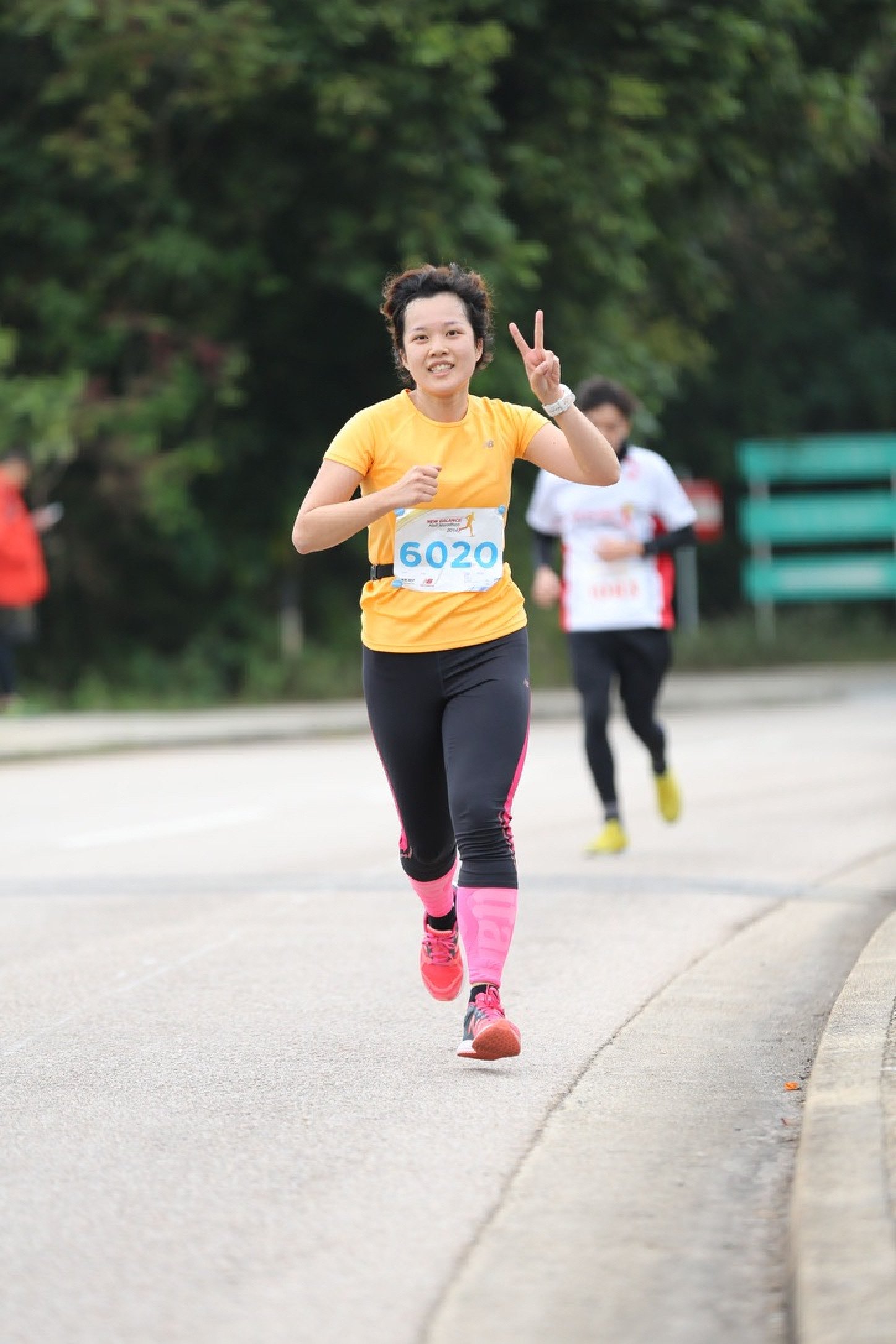
She gave up running when she injured her hamstrings and sit bones – the pair of rounded bones that extend from the bottom of the pelvis – after the marathon.
Li took up yoga in 2016, attending Iyengar classes at both Yogasala and the Iyengar Yoga Centre of Hong Kong (IYCHK).
“Yoga is my sanctuary, my refuge. My teachers Icy and George have been my best ‘counsellors’. They both saw me as a person with potential and not as a ‘patient’,” she says.
Now enrolled in a three-year Iyengar yoga teacher-training programme, she practices yoga five times a week.
“When I started practising yoga, I had no confidence and self-esteem. Yoga enabled me to get ‘out of my head’ and live in the present moment by forcing my brain to focus on the instructions that the teacher was giving.”
She regularly practises a series of poses for emotional stability that the late yoga master B.K.S. Iyengar, the founder of Iyengar yoga, outlined in his book Light on Life.
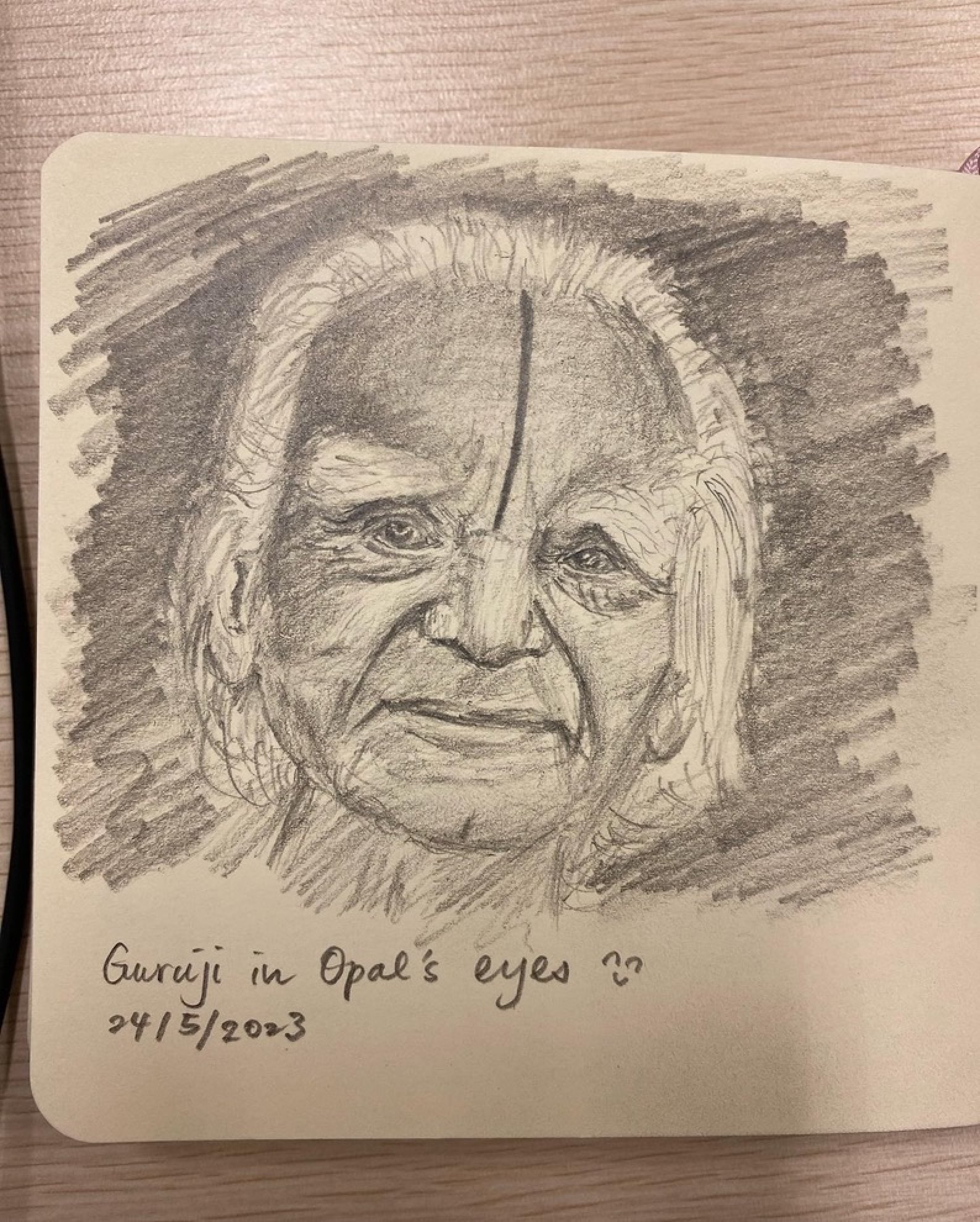
Yogasala founder Icy Lee says that by practising different yoga poses, or asanas, “we learn to discipline the mind through the body”.
Often, we experience different ups and downs in life, Lee says. “Asana practice helps to regain balance in all situations.”
Standing poses like Tadasana make Li feel grounded, while inversions like Sirsasana (head stand) and Sarvangasana (shoulder stand) provide emotional stability, she says.
Practising pranayama, or breathing techniques, helps clear her thoughts and increases sensitivity towards herself and others.
“In cases of mental illness, a person feels helpless because of the painful moods and emotions they are experiencing,” says IYCHK director George Dovas. “With the practice of yoga, their mood can be altered, and hope emerges.
“The asanas offer a well-equipped toolbox for customising the practice, which is particularly useful for people who are bipolar, where one day the student may be experiencing mania, and another day depression.
“The postures change the practitioner’s breathing, and within certain asanas we introduce pranayama which influences the brain, and helps regulate behaviour, thought and emotion.”
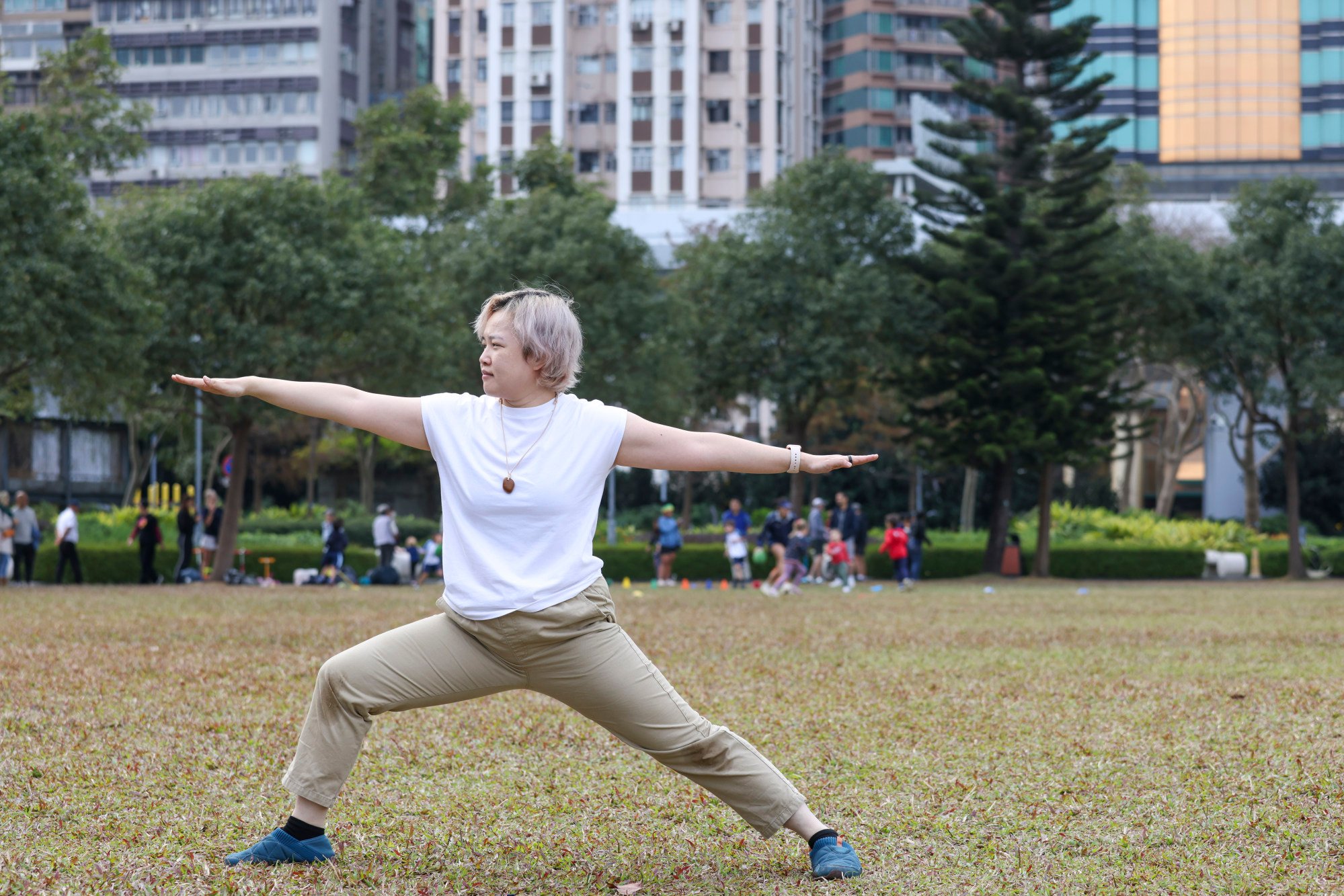
Being immersed in yoga kept Li busy and anchored during the pandemic. She attended more than 300 online yoga classes in 2020. She also took up sketching and oil painting.
“I was worried that I would go crazy during the lockdown and started painting and loved it. I find art therapeutic,” she says.
Li’s struggle with mental illness inspired her to understand the mind better, and she obtained a master’s degree in psychology from the Hong Kong Shue Yan University in 2017.
“Asking for help is a brave step, so get support from a counsellor, a friend or anyone you trust,” she says.
“We live in our heads and neglect our bodies. My wish is that we learn how the mind can be reached and transformed through the body and unleash this treasure through yoga.”


